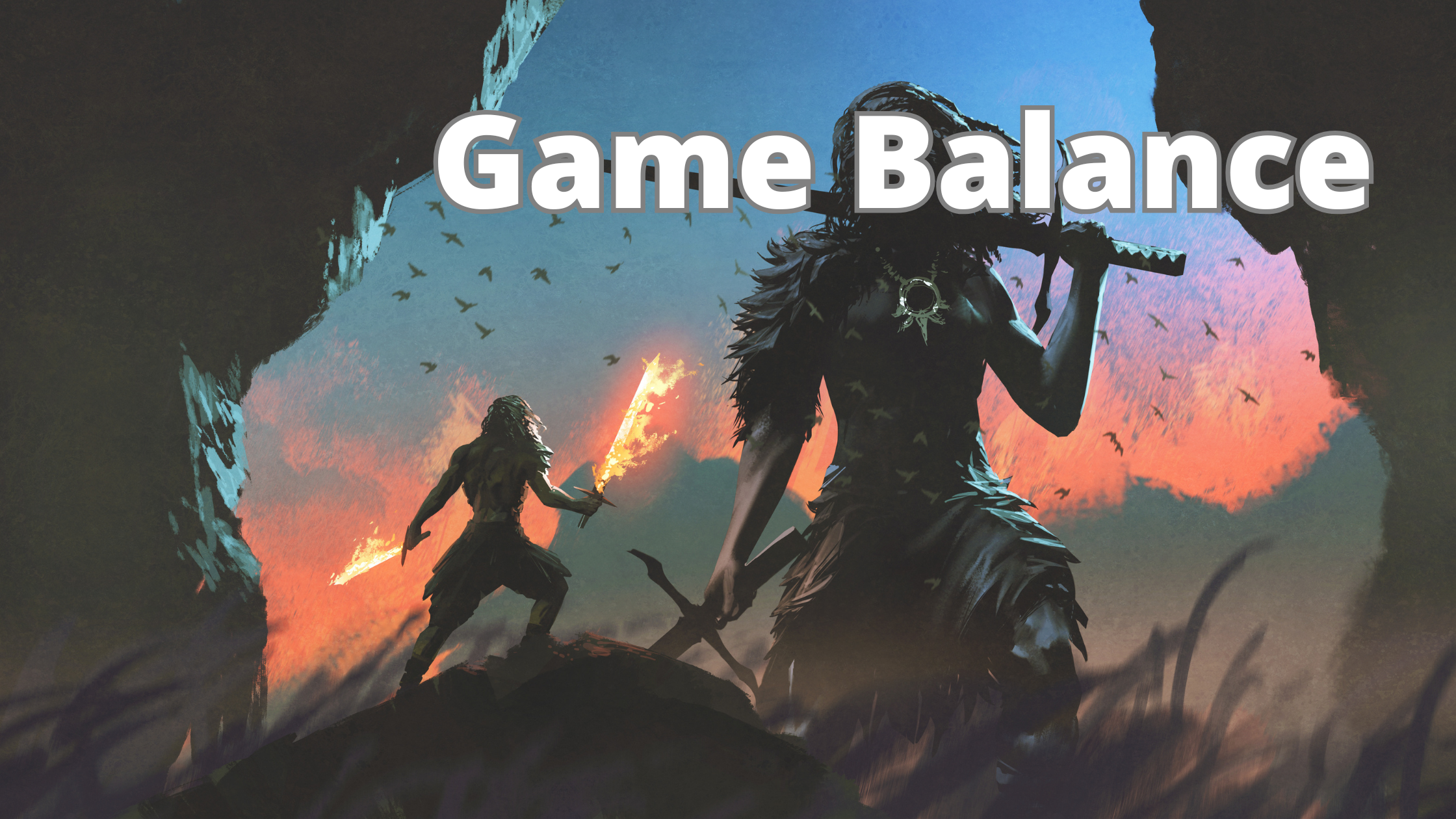The Biggest Lie in TTRPGs
The idea that you need to worry about game balance when running your game is a myth.


A great lie permeates tabletop roleplaying games like Dungeons & Dragons. Let’s dispel the myth of game balance. Drama aside, the idea that you need to worry about game balance when running your game is a myth. Yet, the term game balance has enough varying interpretations to be rendered utterly meaningless without more context. So let’s add some.
I’m talking about the relative power of a thing in the game. Is this magical sword too powerful? What about that spell? If I give my party a flying castle, have I just ruined the rest of the campaign? How about this homebrewed fighter ability? At every turn, the question game balance can rear its ugly head to stifle creativity and fun.
Give the Cool Thing
In my 5E Nentir Vale campaign, I gave out a sword called Netherfang1. It’s essentially a +3 Nine Lives Stealer. The character was level 3. Did he become overpowered? No. Were the other players jealous? If at all, only until they got their own awesome thing. Did it create amazing moments in the campaign? Almost immediately.
Give your player characters the cool sword, spell, or special ability. Watch them delight in it. Watch them use it to create unpredictably cool moments in the campaign. Follow the fun. These “unbalanced” decisions often unlock the magic of amazing stories. When we use our best ideas without sweating the question of balance, we’re more excited and engaged. The only balance to concern ourselves with is that we spread around the cool things. Make sure each character and even some monsters eventually get the cool thing.
Here are twelve cool things you can drop into your game right now:
- A flying castle
- A sword that casts a fireball spell on a critical hit
- Exploding damage dice for a barbarian’s rage
- Exploding damage dice for spells over level 5
- A weapon that can kill any fiend CR3 and under with a single successful attack
- A crossbow with exploding ammunition
- An assassin NPC that can be paid to kill any creature CR 7 or below
- A shield that when activated grants its armor bonus to the entire party
- A sprite that can be let loose to terrorize enemies, granting you advantage on attacks
- An eye of undeath that charms undead within 30 feet
- A winged sword that grants its wielder a fly speed
- A pet dog whose lick grants wound healing
Do the Cool Thing
In my 4E epic campaign, the party fought a balor atop a skyscraper. At the end of the fight, the wizard cast Closing Spell with a critical success. I drew from my critical hit/fail deck of cards for flavor and the result for a spell was to triple the damage. Is that balanced? Definitely not. Did I do it anyways? You bet. The result was an explosion atop the skyscraper with heroes and monsters falling through the air. It remains one of the coolest moments I’ve experienced in D&D and aiming for a more balanced approach would’ve prevented it.
When your player comes to you with a cool idea, let them do it. I’m not talking about blatantly breaking the core mechanics. You don’t need to let them attack three times if their class doesn’t allow it. But jumping off the roof for a chance to double their damage? Hell yes. Sell it!
A big opportunity for cool moments is critical successes and failures. Forget double damage on a natural 20 or a dropped sword on a natural 1. Let your player lop off a limb with a critical success. Or maybe the fireball spell creates a small crater. Two critical successes in one round? The boss is dead. With critical fails, weapons break, get stuck, and spells misfire. Do the cool things without worrying about how “balanced” it might be.
But game balance exists for a reason, right? If you are trying to design a tabletop roleplaying game that serves a market of millions of players, then sure. You can worry about game balance. If you’re creating or running a game for your friends, it’ll only hold back the fun. Your players are more likely to remember that time you slayed the demon king over the specifics of damage output during the fight.
Don’t get caught up in the lie that you need to worry about game balance in your home D&D games. Give the cool things. Do the cool things. Follow the magic.
Game on.
- From the Vorpal Almanac by Exalted Funeral Press↩︎
